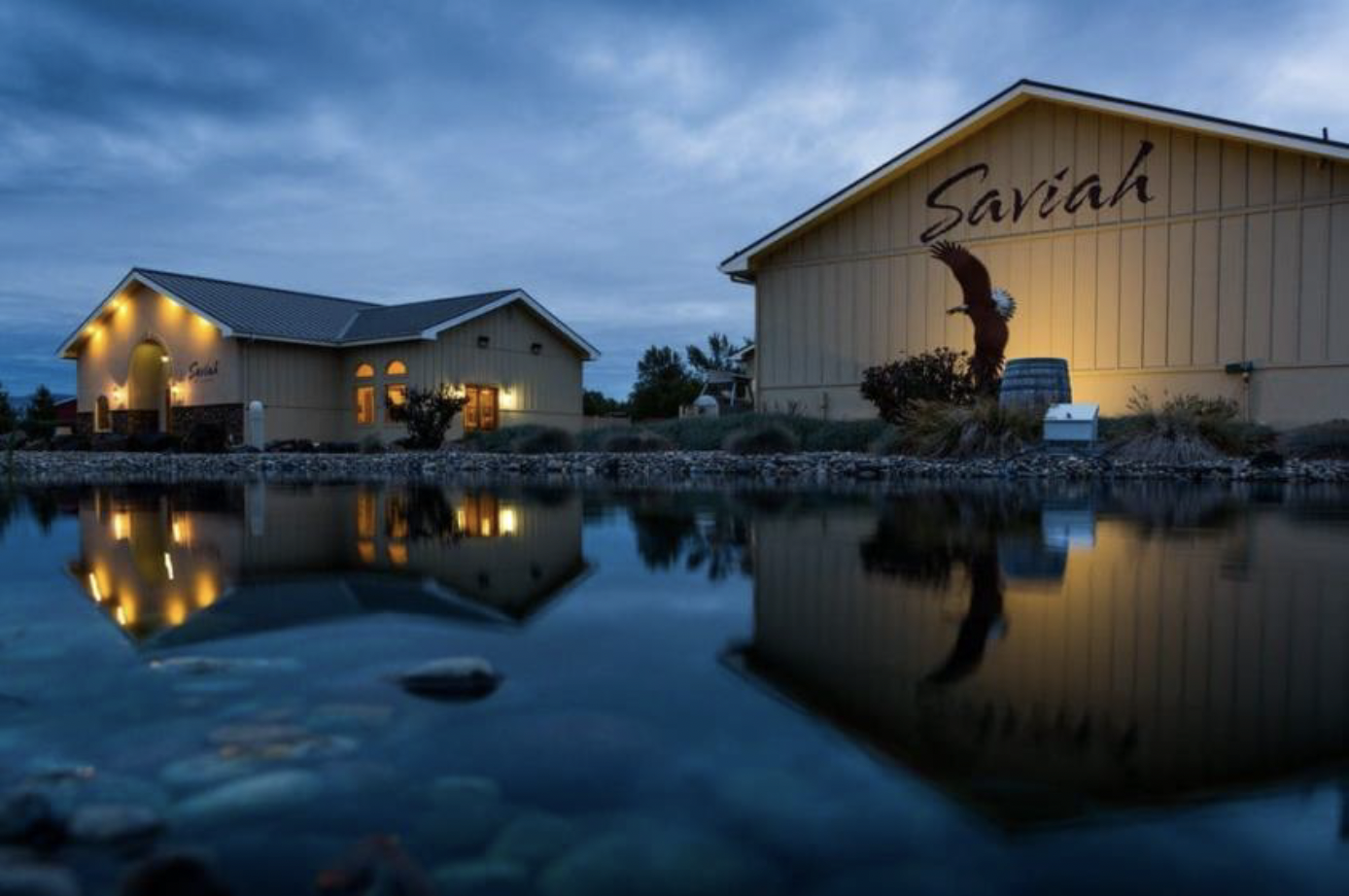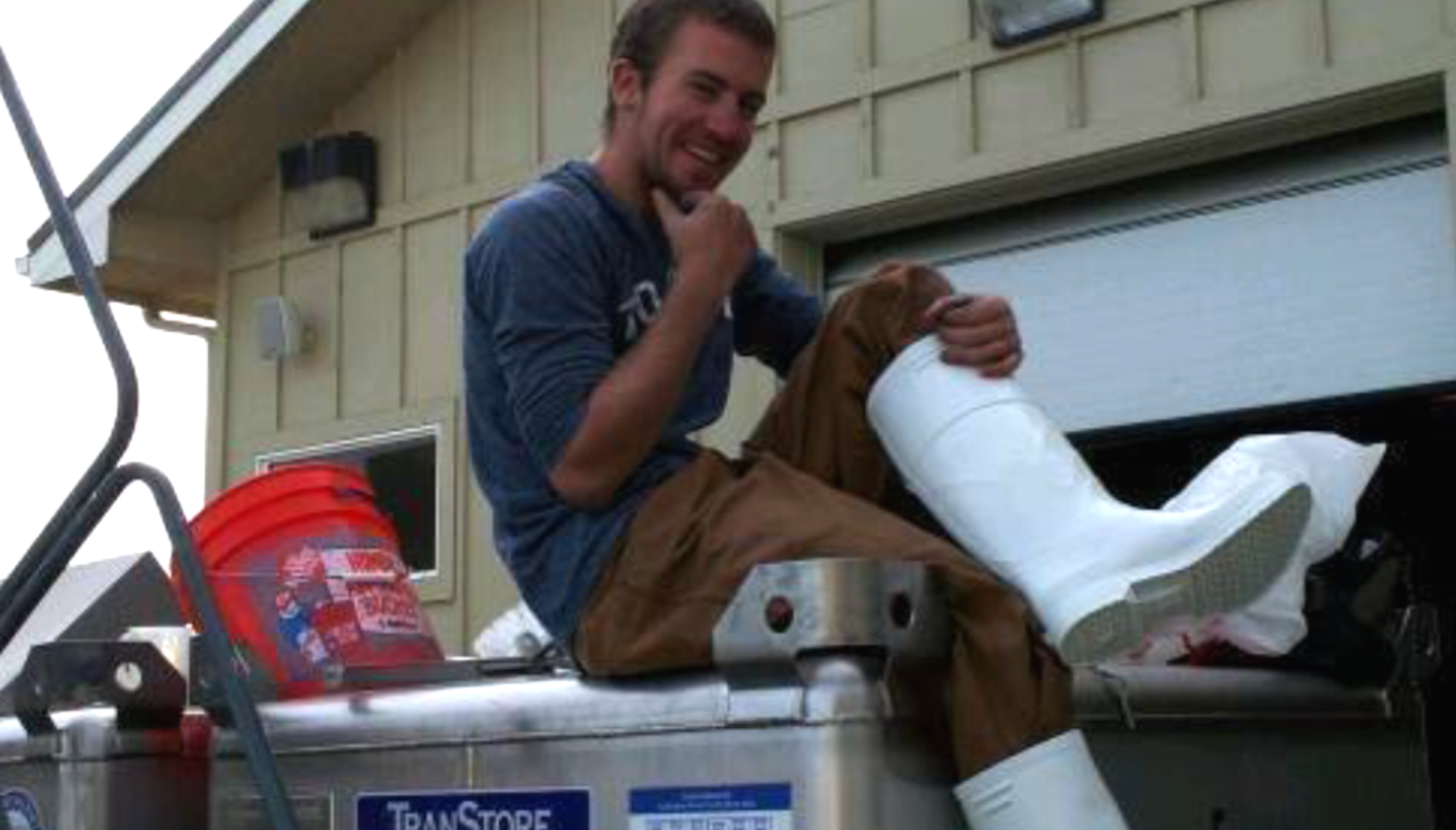An interview with Blake Hintz of Saviah Cellars by Gustavo Ortiz
In this interview, I got in contact with Blake Hintz a former alumnus from College Cellars. He is the Cellar Technician at Saviah Cellars. Throughout the interview we talked about everything from the beginning to now, this man Blake Hintz has a passion for wine and the best thing of all is he loves what he does. Overall, we talked about him being a young adult working at a cellar till now working in the industry and his thoughts about what the future holds for winemaking.

Gustavo Ortiz: Blake, how did you get into wine?
BH: So long story short on my start in the industry, I started when I was in sixth grade working after school at Coeur d Alene Cellars. The winery was owned by the Gates family and the father was the one who performed my surgery at 2 months old so we went way back.
GO: Is there someone in the EV world that you admire, including fellow EV alums?
BH: I would say the person I look up to in the industry is Richard Funk. His passion for winemaking and terroir driven wines has helped further my knowledge into different methods in which to best showcase wines from different areas in Washington. He also has put a great team together at Saviah that has become more like family for me rather than just coworkers. His ability to have a winery in which you can learn, have fun, and be friends with all your coworkers is amazing, you could say I’m happy going on over 9 years with Saviah Cellars.
GO: What’s special to you about working in the wine industry?
BH: In terms of what’s special to me about the industry, well it was pretty much what I grew up in and so the friends and people I have been able to meet because of the industry has been awesome. Also, just how multi-faceted it can be, such as doing vineyard work in the morning, blending trials in the afternoon, followed by wine and yoga class at a local winery, ending with a winemaker dinner catered by a local chef in town.
GO: What is your favorite part of your job?
BH: My favorite part of my job is like I said above, how multi-faceted it is. In the vineyards I can be pruning, spraying for weeds or tractor work such as cultivating and hoeing. In the cellar I can be blending, racking, topping, and bottling. During harvest I’m checking grape samples, processing fruit, running the press and good ol’ punch downs. I also work with our accountant for inventory counts and transfers of wine. There is more but I guess my favorite part is all the different aspects I get to help out in and learn from.
GO: What are some of the challenges you’ve faced in the industry?
BH: Challenges I’ve faced in the industry are that this profession is not a 9-5 job and depending on what season you’re in you could be working 40 hours a week or in a special harvest 100 hours a week, so it’s important to love what you do and during those long harvests try and have some fun….like show up to work with a blow-up T-Rex costume to make people laugh. The other challenge is being able to check yourself, this is an alcohol driven industry and is easy to over indulge.
GO: What do you think differentiates and excites you about Washington wine?
BH: What excites me about Washington wine is how different wines are from different regions of the state. You can have three Cabernet Sauvignons: one from Red Mountain, one from Walla Walla, and one from the Rocks District of Milton-Freewater, all will have very different qualities about them that are terroir driven. Also, with the growing number of wineries comes different visions of how they want to represent the wines, such as new world or old-world style. Rosé wines are becoming so popular that there is now a winery dedicated to rosé. It’s this growth and different views on how wine can be made that is quite remarkable. The fact that there is not just one universal recipe on how to make wine gives each winemaker the ability to spread their wings and try different things and I think Washington winemakers are doing just that.
GO: How do you foresee climate change or social issues affecting the local industry in the next few years?
BH: With climate in the Walla Walla region, we have seen cold winters and warmer summers. I’ve learned a good practice for vines in the winter is always to bury a cane as an insurance policy. Wind machines can work wonders but as people in the valley know temperature can get below what wind machines are able to help. In terms of social news, I’m excited to see how the expansion at Watermill Winery’s crush facility will bring in new wineries and bring more love in for the Rocks District of Milton-Freewater.
GO: What are some up-and-coming trends in wine that you’re following?
BH: With up and coming trends I’m happy to see wine sourced from Rocks District getting more attention. I’m a little biased because I always like a wine with those characteristics. Also, I don’t know if it’s a trend but you’re seeing more whites and rosés out in the market.
GO: What advice can you share with future EV graduates?
BH: Advice for upcoming students I’d say would have to be… This is an amazing industry to be in and the amount of people you will get to meet and know will be ever growing. Winemaking and grape growing is an expanding industry with new practices and methods coming out every year on how to better your farming methods and how to get the best quality of wine in your glass. It isn’t your typical 9-5 job and you will be wet and have dirt on your shoes but after going on 21 years of doing it I still love it.


Join the Conversation